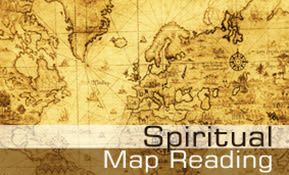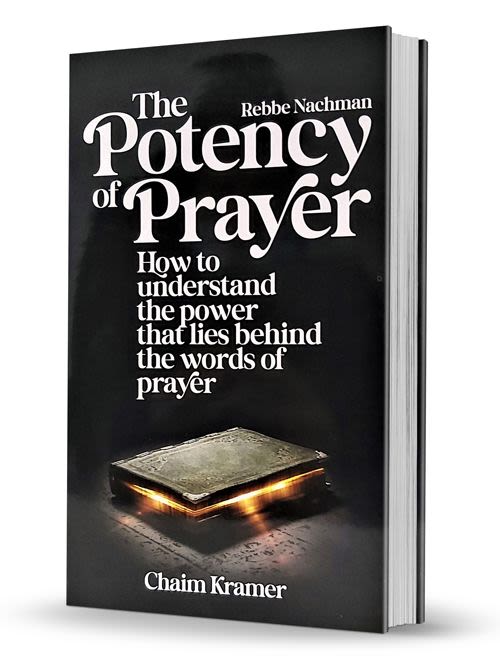
Your Mission on Earth
Why doesn't The Creator stamp us all out from an identical mold, and make life easier on Himself? The reason is simple: Each one of us has his or her own...

We continue with the Ten Lessons of the Flakefoot Falcon as we learn how to acquire the art of being at peace with ourselves.
Lesson Number one: Look for your good points
Lesson Number two: Separate your weak points
Lesson Number three/four: The weaknesses are a blessing
Lesson Number four: To judge yourself fairly
Lesson Number five/six: Utilize your talents
Lesson Number seven: Say hello to swindling SAM
Lesson number eight: Don't blame yoourself!
Lesson Number Nine: Understand your very special mission on earth. Try your best to understand why God created you the way He did.
Let's compare two airplanes: One is a Boeing-747 Jumbo and the other is an F-15 jet fighter. They have several things in common: First, they both fly. Second, they both have jet engines. Third, they both have the basic parts that all jet aircraft have – wings, elevators, fuselage, landing gear, etc. At this point, their similarity comes to a screeching halt.
Look at the differences between the two aircraft: First, the 747 is a commercial plane designed to transport hundreds of people, while the F-15 is a military plane which holds only one person – the pilot. Second, the 747 is equipped with complete service kitchens, including heating ovens and freezers, as well as other amenities designed to make passengers feel like they're sitting in their living room. The F-15 carries no amenities – only weapons, from air to air missiles and air to ground missiles to high caliber machine guns.
Clearly, a 747 can't perform the task of an F-15 and vice versa. We all understand that we need the services of a 747 to fly from London to New York, but we call on an F-15 to patrol our country's skies. A 747 is much too cumbersome to police the skies, and an F-15 is much too tiny to transport people. Yet, they each have their unique and essential missions.
Let's make one additional comparison, between a thoroughbred and a donkey. You'd probably prefer to own a thoroughbred, wouldn't you? The horse is faster and much more handsome than a donkey. Yet, a little donkey can carry a load that would break a thoroughbred's back. Donkeys are much more surefooted than horses, and can negotiate precarious rocky mountain trails that would break the legs of a thoroughbred. Like the 747 and the F-15, donkeys and thoroughbreds can't fulfill each other's duties. Each animal has its own special contribution to the world.
If machines and animals have their own unique functions, people certainly do as well. In recent years, mankind is finally beginning to understand the unbelievable effort that God devotes in making each of us a special individual, via the discovery of DNA, RNA, chromosomal combinations, and genetic maps. Why all the bother? Why doesn't The Creator stamp us all out from an identical mold, and make life easier on Himself? The reason is simple: Each one of us has his or her own unique mission on earth, and God outfits us with the necessary talents and aptitudes in order to accomplish what we're supposed to; in a similar manner that the F-15 and the 747 are outfitted with the equipment needed to perform their tasks.
I see you nodding your head, dear friend. You want to tell me, "That's all well and good, Lazer, but how do I know what my own special task on earth is?" I'm glad you asked.
Do you remember how well you counseled the Flakefoot Falcon, back at the beginning of this chapter? Do you remember the self-assessment table, where you listed your individual characteristics? By taking a good, hard look at yourself, you'll understand your ultimate mission in life. The self-assessment table, coupled with heightened spiritual awareness and talking to God (which you'll learn how to do in the coming chapter), are the tools required for finding yourself. Sharing your thoughts with a spiritual counselor will also benefit you – the better the counselor, the better the advice.
Here's a brief example: Pierre Plasse[1] is a French toilet bowl manufacturer. Other companies manufacture toilet bowls, but for some inexplicable reason, Frenchmen prefer Plasse's product. Plasse is a simple man who possesses good common sense, but lacks a high school diploma. Yet, he's a multimillionaire.
Plasse once told me, "What shall my claim to fame be, that I devoted my life to helping people relieve themselves comfortably? I'm afraid not. When I realized that The Almighty was giving me fifty times the money that I need to live on, I concluded that philanthropy is my life's mission. Instead of wasting my time on squandering my wealth, I began shopping around for the best charities I could possibly find."
In the last ten years, Plasse has built an orphan's home, a halfway house for the homeless, a subsidized convalescent home for low-income mothers, and an outpatient clinic for battling drug addiction, just to name a few. "I guess that people insist on buying Plasse toilets so that I can have the funds to continue my work." Pierre Plasse combines his golden heart with his golden bank account to make this world a better place.
A person should forever pursue the field of his heart's desire. — The Talmud
The minute you put your mind to the task, you too will understand your very special mission on earth, the reason God created you so special. The better you realize your mission on earth, the more fulfilled you'll be, and the more you'll be at peace with yourself.
Lesson Number Ten: Understand that your soul is timeless. Your actions will affect the world long after you've left this life.
This is our concluding lesson from the Flakefoot Falcon.
Inherently, when our actions impart a positive influence on others, we are rewarded forever and ever. The body is limited, but the soul – like its Creator – is timeless. The soul continues to reap rewards for its good deeds long after the body has disintegrated. Likewise, an evil person – whose actions have caused pain and suffering to the world – condemns his own soul to a dismal future of eternal grief.
When we ponder the long-term effects that our deeds have on the world around us, we take a lot more care in the way we raise our children, relate to our spouses, and decide on our priorities in life. The more we consider the long-term influences that our actions bear on our souls, the better we act. The better we act, the better we feel about ourselves, and the more we attain genuine inner peace.
To be continued . . .
(The Trail to Tranquility is available in the Breslev Store.)
* * *
[1] Names and circumstances altered













Tell us what you think!
Thank you for your comment!
It will be published after approval by the Editor.